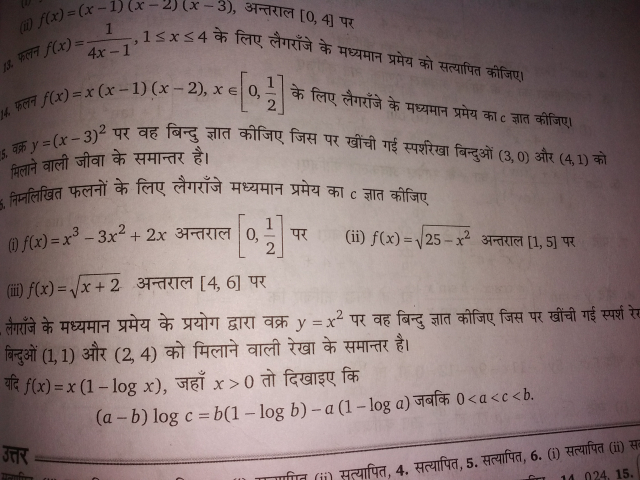
AllQuestion and Answers: Page 1705
Question Number 35256 Answers: 1 Comments: 1
$$\mathrm{Factorize}\::\mathrm{x}^{\mathrm{5}} −\mathrm{y}^{\mathrm{5}} \\ $$
Question Number 35248 Answers: 0 Comments: 1

Question Number 35246 Answers: 1 Comments: 1
Question Number 35245 Answers: 0 Comments: 7
Question Number 35244 Answers: 0 Comments: 1
Question Number 35242 Answers: 1 Comments: 1
$${find}\:\:\int_{\mathrm{0}} ^{\pi} \:\:\:\:\frac{{xdx}}{\mathrm{1}+{sinx}} \\ $$
Question Number 35241 Answers: 2 Comments: 6
$${calculate}\:\int_{\mathrm{0}} ^{\pi} \:\:\:\:\frac{{x}\:{dx}}{\mathrm{3}\:+{cosx}}\:\:. \\ $$
Question Number 35238 Answers: 0 Comments: 1
Question Number 35237 Answers: 0 Comments: 1
Question Number 35236 Answers: 0 Comments: 0
Question Number 35235 Answers: 0 Comments: 2
Question Number 35234 Answers: 0 Comments: 1
Question Number 35232 Answers: 0 Comments: 0
Question Number 35231 Answers: 0 Comments: 1
Question Number 35229 Answers: 1 Comments: 2
Question Number 35228 Answers: 0 Comments: 2
Question Number 35226 Answers: 0 Comments: 4
Question Number 35225 Answers: 0 Comments: 4
Question Number 35224 Answers: 1 Comments: 0
Question Number 35223 Answers: 1 Comments: 0
Question Number 35222 Answers: 1 Comments: 1
Question Number 35221 Answers: 0 Comments: 0
Question Number 35220 Answers: 0 Comments: 1
Question Number 35219 Answers: 0 Comments: 0
Question Number 35218 Answers: 0 Comments: 0
Question Number 35217 Answers: 0 Comments: 1
Pg 1700 Pg 1701 Pg 1702 Pg 1703 Pg 1704 Pg 1705 Pg 1706 Pg 1707 Pg 1708 Pg 1709
